Public iCal link: https://calendar.google.com/calendar/ical/proval%40lri.fr/public/basic.ics
Seminars
KEYNOTE: UTP and Institutions: A Unified Semantic Foundation
Speaker:Jim Woodcock https://www.cs.york.ac.uk/people/jim, University of York, (Emeritus)
Wednesday Dec 17 2025, 14:00, Room 1Z31 (Zoom link)
Abstract: Modern software and cyber-physical systems are intrinsically heterogeneous, combining discrete, continuous, probabilistic and human-in-the-loop components. Unifying Theories of Programming (UTP) provides rich, relational models of programs, supported by a refinement calculus and healthiness conditions. In contrast, Institution theory offers a logic-independent, categorical framework for heterogeneous specification and satisfaction. Yet these two influential foundations developed mainly in isolation. This talk proposes a semantic bridge between them by treating UTP theories as Institutions and wiring them together via institution (co)morphisms induced by UTP Galois connections. Signatures become UTP alphabets, sentences are healthy predicates or designs, models are programs, and satisfaction is refinement. We explore two proposals: first, replacing UTP's relational base by institutional semantics, analysing the impact on refinement, theory composition and mechanisation. Second, a hybrid framework in which UTP retains its concrete relational semantics but is organised institutionally as a "logic of logics". The outlook is a semantic "UTP supermarket" structured by institutional (co)morphisms, supporting modular, heterogeneous verification across paradigms such as reactive, probabilistic and hybrid systems and enabling tighter integration of tools like Isabelle/UTP with multi-logic environments.
Planning
Past seminars
The Spectral Space of an Iterated Distributed Protocol
Speaker: Cameron Calk https://ccalk.github.io/, LIS / Aix-Marseille University Room 1Z25 (Zoom link)
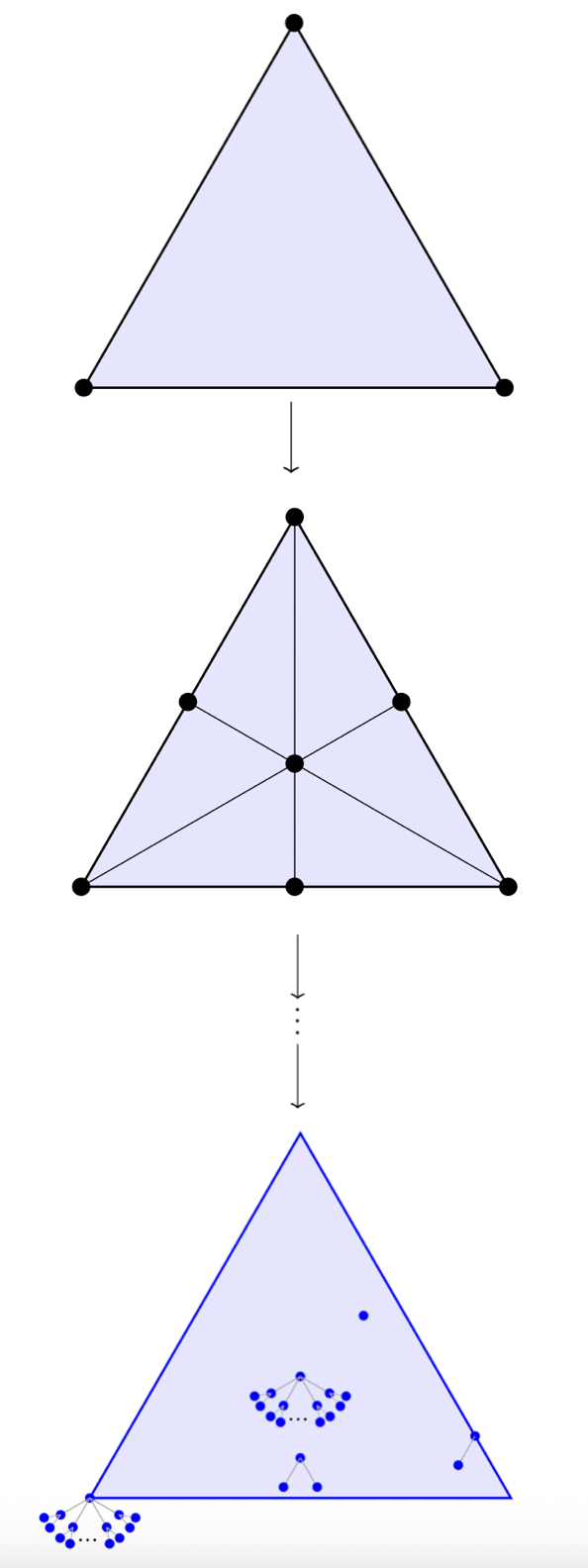
Abstract: An important question in the domain of distributed computing is that of task solvability : given a distributed task, the analog of a program specification for distributed systems, under which conditions can it be solved by some distributed protocol ? The topological approach to distributed computing represents tasks and protocols as relations between simplicial complexes, combinatorial objects which encode possible global states of the system. These have a spatial interpretation, which led to the Asynchronous Computability Theorem (ACT), which relates, for certain computational models, the existence of a continuous map to task solvability, using subdivisions of the input space.
In this talk, I will present a generalisation of the ACT for colourless protocols based on categorical and duality theoretic constructions. This is achieved by viewing an iterated protocol as an endofunctor on the category of simplicial complexes, along with a natural transformation encoding the relation between inputs and computational outputs. From this data we produce, for each possible set of inputs, a limit object in the form of a spectral space which encodes all possible computational outputs, and characterises the task solvability of the protocol. Indeed, a protocol can solve a task if, and only if, there exists a continuous map from the associated spectral space to the space of outputs. This construction works for any iterated protocol, but we additionally show that it is compatible with the original approach using subdivision protocols, since in this case the geometric realisation, the space used in the original ACT, is a canonical subspace of the associated spectral space.
This is a joint work with Emmanuel Godard, and a pre-print can be found on arXiv here.
Parameterized Verification of Distributed Systems
Speaker: Chana Weil-Kennedy https://chana-wk.github.io/ , CEA List
Tuesday Dec 02 2025, 14:00, Room 1 Z 31 (Zoom link)
Abstract:I am interested in verification of distributed systems with an unbounded number of agents running the same finite-state program. These include systems like conservative Petri nets, population protocols, reconfigurable broadcast networks and more. Properties of interest for these systems are "parameterized": for example, is there a number of agents N such that my system instantiated with N agents reaches a bad configuration? I will present a recent result on HyperLTL for population protocols, where we will see that the verification problem can be cast as a parameterized reachability property. I will then present some open questions for parameterized verification of such systems. If I have time, I will present my newest research direction which concerns runtime verification of distributed systems, and the hypotheses that can be made on the setting.
A pain-free formalisation of the Leibniz construction
Speaker: Axel Ljungström, University of Nottingham
Tuesday Nov 18 2025, 14:00, Room 1Z76 (Zoom link)

Abstract:For better or worse, some mathematicians working in formalisation (including myself) like to work in a proof-relevant setting, such as HoTT or simply MLTT without UIP. While theorems stated in these settings enjoy interpretations in a rich class of models, this matters little if we can't prove them. Indeed, even when proving the most innocent-looking theorems, there is one recurring issue that often stumps even the most seasoned formaliser: coherences. This talk is about my most recent visit to coherence hell and, in particular, a neat little trick that helped me and my collaborators escape it.
More specifically, this talk concerns an ongoing formalisation project with Tom de Jong and Nicolai Kraus on so-called Leibniz products and exponentials (also known as pushout products and pullback powers) and their adjointness. Although this problem is motivated by the development of simplicial type theory, it is also completely self-contained and should be understandable to anyone who knows some basic MLTT and/or category theory. The approach we've taken provides a heuristic for dealing with many coherence problems in general and my hope is that it will be useful to mathematicians and computer scientists stuck on similar problems.
Elements of Higher-Dimensional Automata Theory
Speaker: Uli Fahrenberg, LMF ("Inaugural Lecture")
Tuesday Oct 28 2025, 14:00, Room 1Z62
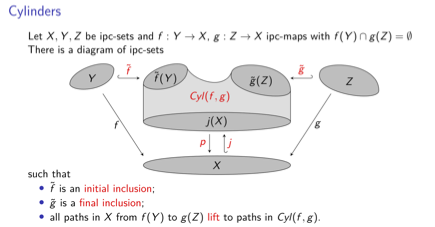
Abstract:We give an introduction to higher-dimensional automata (HDAs) and their languages and evoke some of their many nice properties: a Kleene theorem, a Myhill-Nerode theorem, and a BET theorem. We also show how HDAs may be applied in the analysis of Petri nets and, if time permits, will delve into real-time extensions.
On Dependent Variables in Reactive Synthesis
Speaker: Supratik Chakraborty, IIT Bombay
Tuesday 10 June 2025, 14:00, Room 1B36 ENS Paris-Saclay
Abstract:
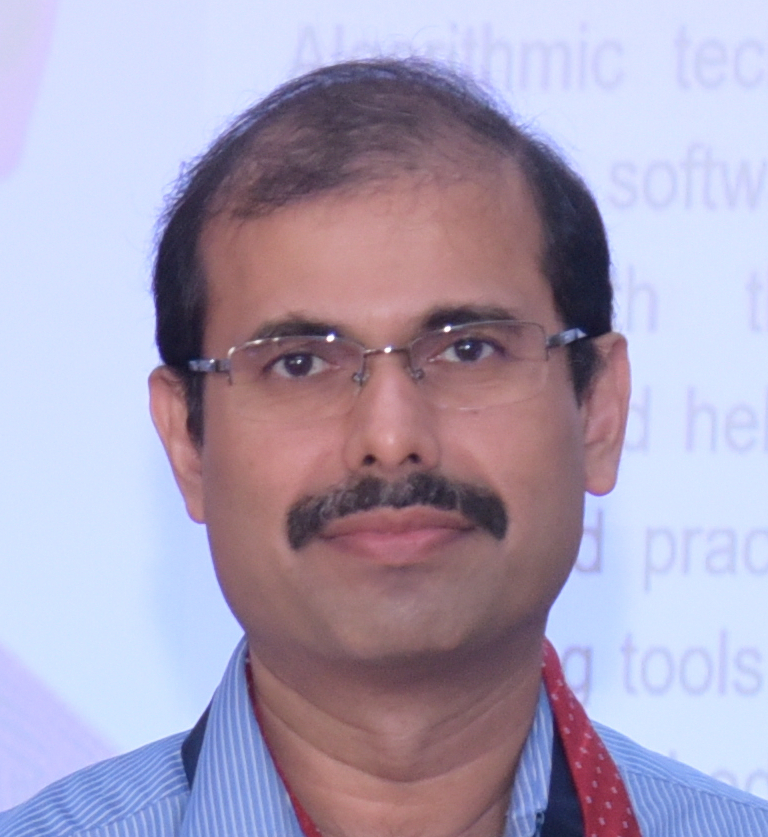
Given a Linear Temporal Logic (LTL) formula over input and output variables, reactive synthesis requires us to design a deterministic Mealy machine that gives the values of outputs at every time step, such that the LTL formula is satisfied. In this talk, we investigate the notion of dependent outputs in the context of reactive synthesis. Inspired by successful pre-processing techniques in Boolean functional synthesis, we define dependent outputs in reactive synthesis as outputs that are uniquely determined, given an assignment to all other variables and the history so far. We describe an automata-based approach for finding a set of dependent outputs. Using this, we show that dependent outputs are surprisingly common in reactive synthesis benchmarks. Next, we develop a novel framework that exploits dependent outputs in solving a synthesis problem. By implementing this framework using the widely used library Spot, we show that reactive synthesis that exploits dependent variables can solve some problems beyond the reach of existing techniques. Furthermore, we observe that among benchmarks with dependent outputs, if the count of non-dependent variables is low (≤ 3 in our experiments), our method outperforms state-of-the-art tools for synthesis.
This is joint work with S. Akshay, Eliyahu Basa and Dror Fried, and appeared in TACAS 2024.
Bio:
Supratik Chakraborty is Bajaj Group Chair Professor of Computer Science and Engineering at IIT Bombay. His research interests lie at the intersection of theoretical and applied computer science, with a focus on scalable and practical formal methods. He is a Fellow of Indian National Academy of Engineering and a Distinguished Member of ACM.
KEYNOTE : The Role of Logic in Advancing Machine Learning: Three Case Studies
Speaker: Pablo Barcelo, Chair of Computational Engineering, School of Engineering and Faculty of Mathematics, Universidad Católica de Chile
Tuesday 20th May 2025, 14:00, 1Z56 (to be confirmed)
Abstract:
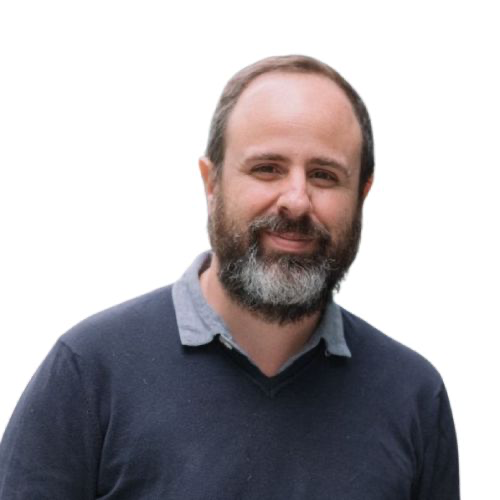
I present three case studies from my collaborative research that highlight the essential role of logic in enhancing our understanding of modern machine learning architectures. The first two examples focus on the expressive capabilities of two prominent architectures: Transformers, which have revolutionized NLP applications, and Graph Neural Networks, a leading approach for classifying graph-structured data. We employ temporal logic techniques to analyze the properties that Transformers can recognize, and modal logics to examine the properties discernible by Graph Neural Networks. The third example addresses the pursuit of explainable AI, demonstrating how first-order logic can be used to design languages that declare, evaluate, and compute explanations for decisions made by machine learning models.
Regular Grammars for Sets of Graphs of Tree-Width 2
Speaker: Radu Iosif, CNRS/VERIMAG, Rhones des Alpes
Tuesday 29th April 2025, 14:00, 1Z56
Abstract:
Regular word grammars are context-free grammars having restricted rules, that define all recognizable languages of words. This paper generalizes regular grammars from words to certain classes of graphs, by defining regular grammars for unordered unranked trees and graphs of tree-width 2 at most. The qualifier ``regular'' is justified because these grammars define precisely the recognizable (equivalently, CMSO-definable) sets of the respective graph classes. The proof of equivalence between regular and recognizable sets of graphs relies on the effective construction of a recognizer algebra of size doubly-exponential in the size of the grammar. This sets a 2EXPTIME upper bound on the (EXPTIME-hard) problem of inclusion of a context-free language in a regular language, for graphs of tree-width 2 at most. A further syntactic restriction of regular grammars suffices to capture precisely the MSO-definable sets of graphs of tree-width 2 at most, i.e., the sets defined by CMSO formulae without cardinality constraints. Moreover, we show that MSO-definability coincides with recognizability by algebras having an aperiodic parallel composition semigroup, for each class of graphs defined by a bound on the tree-width.
This is joint work with Marius Bozga (Verimag) and Florian Zuleger (TU Wien).
Guiding a monkey in an infinite tree, adding new strategies for proof automation to the Tamarin prover
Speaker: Maiwenn Racouchot, Loria (Nancy), CISPA
Tuesday 2025-03-04 14:00, 1Z62
Abstract: Tamarin-prover is a tool for symbolic modeling and analysis of security protocols. It takes as an input a protocol's model, specifying the roles of the different agents (initiator, responder, different attacker models...) and some security properties required by the protocol. Tamarin can simulate an unbounded number of sessions running in parallel, which means an infinite number of role instances and possible fresh numbers. The execution of the different roles gives a transition system. The security properties are written as trace properties that will be matched against the transition system. To conduct proofs, Tamarin includes by default eight static heuristics. They help cover most cases, but can sometimes be really inefficient. In order to deal with these cases, Tamarin allows its users to create personalized heuristics by writing a script in a foreign programing language (usually python). However, this functionality has several limits (limited input information, state agnostic, compatibility issues). Moreover, while going through the proof tree, Tamarin can get stuck in a loop which prevents the proof from finishing. In this presentation, I will present several tools and approaches to improve Tamarin termination, from a new heuristic language to loop detection and bounded explorations for attack finding. I will also show how these new tools can be combined for greater results.
KEYNOTE: Alpha-Beta Pruning Explored, Extended and Verified
Speaker: Tobias Nipkow, Technische University München (Emeritus)
Tuesday 2025-03-11 14:00, 1Z76
Abstract:
Alpha-beta pruning is an efficient search strategy for two-player game trees. It was invented in the late 1950s and is at the heart of most implementations of combinatorial game playing programs. In this talk I will survey my recent formalizations and verifications of a number of standard variations of alpha-beta pruning. Findings include:
- Basic variants already having a property ascribed to an improved version
- Authors being confused about which algebraic structure they actually work in
- Generalizations to new algebraic structures
- The implementation in a famous paper is flawed
KEYNOTE : Formal Methods for Modern Payment Protocols
Speaker: David Basin, Prof. Dr . David Basin, Chair of the Computer Security Group, ETH Zürich
Tuesday 8th April 2025, 14:00, 1 Z 18 (Salle d'Alembert)
Abstract: EMV is the international protocol standard for smartcard payments and is used in billions of payment cards worldwide. Despite the standard’s advertised security, various issues have been previously uncovered, deriving from logical flaws that are hard to spot in EMV’s complex specification, running over 2,000 pages.
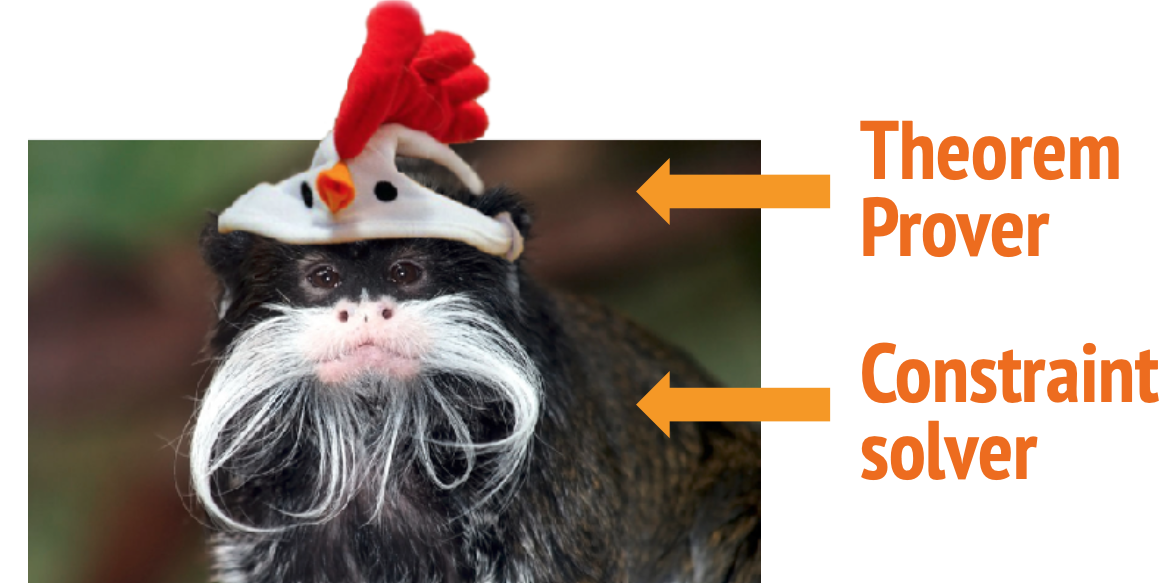
We have formalized various models of EMV in Tamarin, a symbolic model checker that we developed for cryptographic protocols. Tamarin was extremely effective in finding critical flaws, both known and new. For example, we discovered multiple ways that an attacker can use a victim's EMV card (e.g., Mastercard or Visa Card) for high-valued purchases without the victim's supposedly required PIN. Said more simply, the PIN on your EMV card is useless! We report on this, as well as followup work with an EMV consortium member on verifying the latest, improved version of the protocol, the EMV Kernel C-8. Overall our work provides evidence that security protocol model checkers like Tamarin have an essential role to play in developing critical, real-world cryptographic protocols, and that they are up to this challenge.



